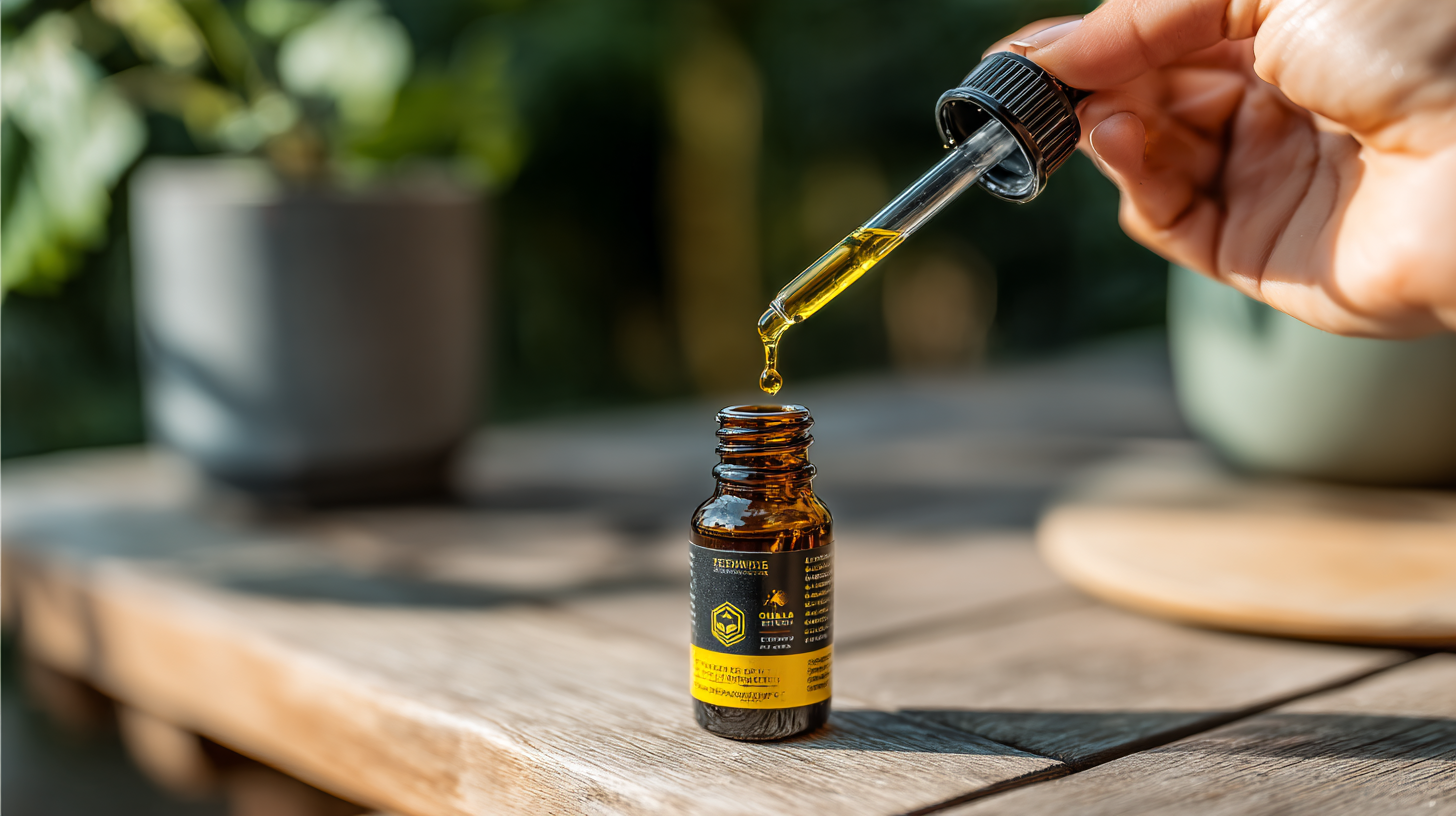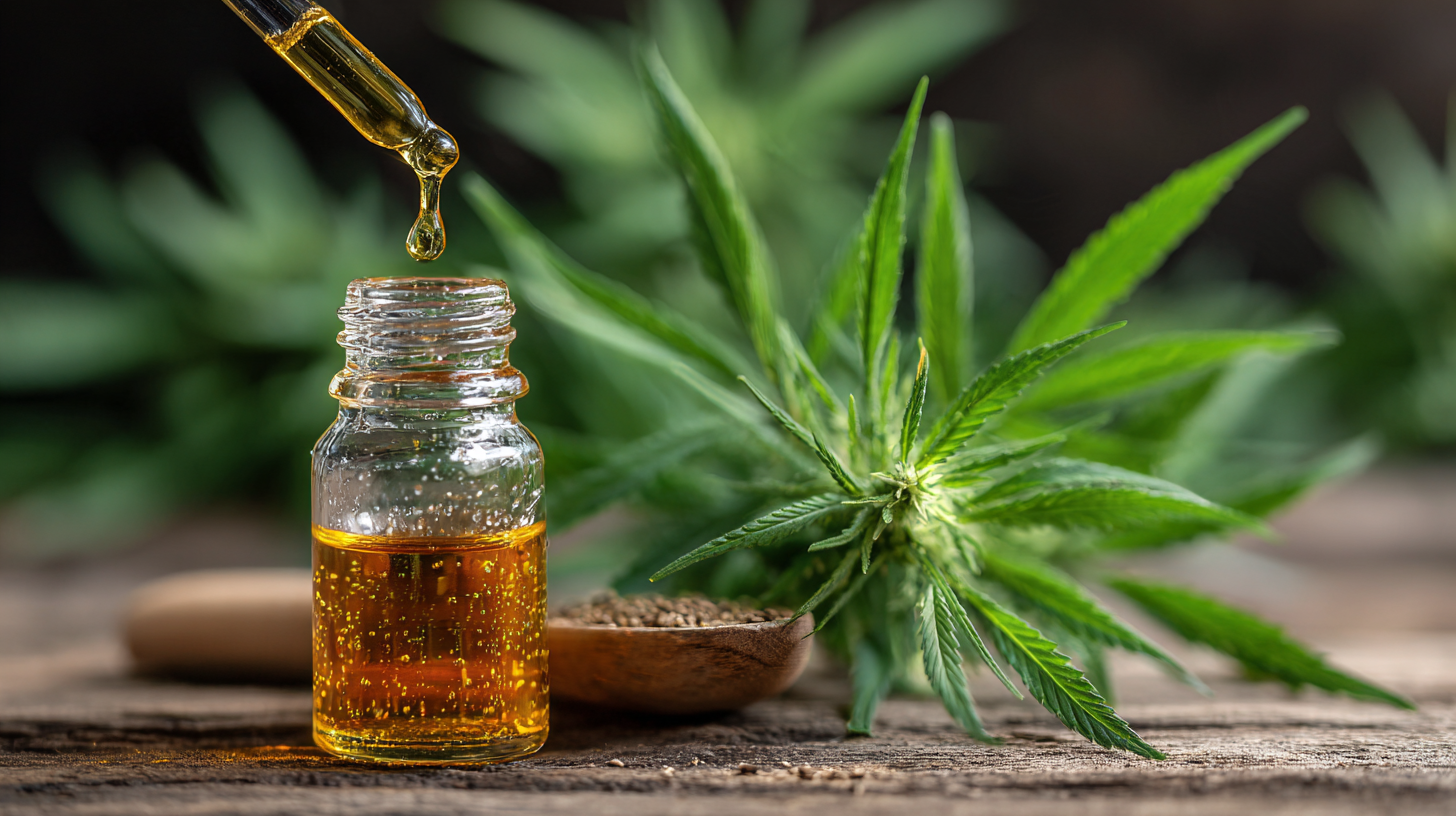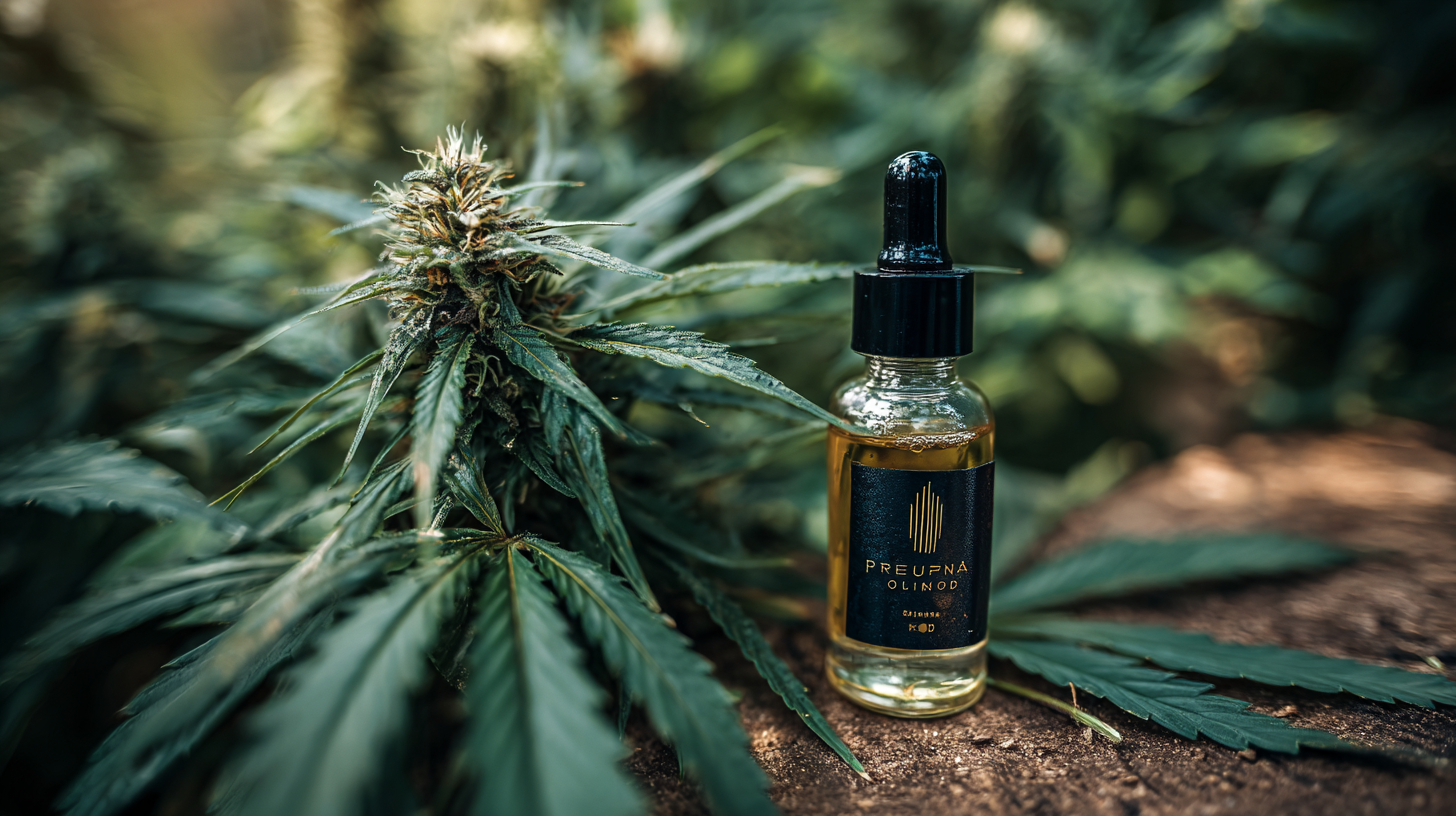As the market for cannabidiol (CBD) continues to expand, consumers often turn to reviews, such as those found in "Purekana CBD Oil Reviews," to make informed decisions. A recent industry report indicates that the global CBD market is expected to reach $47.22 billion by 2028, growing at a compound annual growth rate (CAGR) of 18.05% from 2021. While brands like Purekana have gained popularity for their product offerings, there is a vast array of alternative CBD options that are frequently overlooked. These alternatives may offer unique benefits that differ from those highlighted in conventional reviews. In this blog, we will explore various strategies for finding the most suitable CBD products, emphasizing the importance of understanding the differences among available options and the potential that lies beyond the mainstream offerings.

When exploring the world of CBD, it’s essential to consider the diverse options beyond well-known brands like Purekana. Research indicates that the global CBD market is expected to reach $47.22 billion by 2028, with a CAGR of 18.05% from 2021 to 2028. This rapid growth underscores the increasing consumer demand for a variety of CBD products tailored to distinct needs and preferences.
Diving into alternative CBD products can reveal unique benefits. For instance, full-spectrum oils, which contain a wider range of cannabinoids and terpenes, have been shown to produce the "entourage effect", potentially enhancing the therapeutic benefits of CBD. A study published in the Journal of Pharmacology found that full-spectrum CBD was more effective in reducing anxiety and improving sleep quality than isolated CBD. Exploring options like edibles, topicals, and even CBD-infused beverages can cater to specific lifestyles and wellness goals, offering consumers a customized approach to their CBD journey.
When selecting CBD products, it’s crucial to consider several key factors that can influence both efficacy and safety. One significant aspect is the source of the hemp used in the CBD oil. Reports indicate that hemp grown in the U.S. under strict agricultural regulations generally contains higher quality cannabinoids and fewer contaminants. A study from the World Health Organization highlighted that hemp cultivated organically can provide not only pest resistance but also higher levels of beneficial compounds.
Another critical factor is the type of extraction method used to obtain CBD oil. CO2 extraction is widely regarded as the gold standard, as it ensures the purity and potency of the final product without the introduction of harmful solvents. According to a survey by Brightfield Group, nearly 70% of CBD consumers express concerns over the safety and quality of CBD products, underscoring the importance of transparency in manufacturing processes. Consumers should seek brands that provide detailed third-party lab results, confirming the absence of heavy metals, pesticides, and other unwanted substances.
This chart displays the importance rating for various factors to consider when selecting CBD products. Ratings range from 1 to 10, with 10 being the most important. Cannabinoid content and third-party testing are among the top considerations for consumers.
As the search for effective natural wellness solutions continues to expand, many consumers are interested in exploring alternative CBD options beyond the mainstream brands. While some brands tout the purity and potency of their CBD oils, it's essential to look deeper and assess other notable players in the market that might cater to specific needs more effectively. Alternative CBD brands often emphasize distinctive sourcing practices, innovative formulations, and transparent testing results, setting them apart from the widely recognized names.

In addition to oils, consumers are increasingly turning to CBD-infused edibles, such as gummies, which are gaining popularity for their convenience and targeted effects. The strongest CBD gummies available today are crafted with precision, offering potent doses designed to address various therapeutic needs, from pain relief to anxiety management. As consumers venture into this growing category, exploring lesser-known brands can lead to discovering products that resonate more closely with individual health goals and wellness journeys.
When it comes to assessing CBD oil quality and effectiveness, there are several crucial factors to consider beyond just brand reviews. Firstly, look for third-party lab testing on the product. This testing ensures that the oil contains the advertised levels of CBD and is free from harmful contaminants such as heavy metals, pesticides, or solvents. Reports from recognized laboratories provide transparency and instill trust in the product you are considering.
Another key aspect is the extraction method used to obtain the CBD. CO2 extraction is generally regarded as the gold standard, as it preserves the purity and potency of the cannabinoids without introducing toxic substances. Additionally, pay attention to the source of hemp; organic, non-GMO hemp tends to be cultivated without harmful chemicals, significantly affecting the overall quality of the oil. Understanding these elements will empower consumers to make informed decisions and find CBD oils that truly deliver on their promises.
| CBD Oil Type | Extraction Method | CBD Concentration (mg/ml) | Carrier Oil | Lab Testing | Customer Rating |
|---|---|---|---|---|---|
| Full Spectrum | CO2 Extraction | 100 | MCT Oil | Yes | 4.5 |
| Broad Spectrum | Ethanol Extraction | 150 | Hemp Seed Oil | Yes | 4.7 |
| Isolate | Steam Distillation | 300 | Olive Oil | Yes | 4.2 |
| Full Spectrum | Cold Press Extraction | 200 | Sunflower Oil | Yes | 4.6 |
When exploring alternative CBD options, understanding the importance of proper dosage in CBD consumption is crucial. According to a comprehensive report by the Brightfield Group, nearly 70% of CBD users do not know the ideal dosage for their needs. This gap in knowledge can lead to ineffective results or adverse effects, making proper dosage education essential for anyone considering CBD products.
Research indicates that CBD dosage can vary widely based on individual factors such as body weight, metabolism, and the specific condition being treated. A study published in the Journal of Pain Research found that effective CBD dosages can range from 20mg to over 1500mg per day, depending on the individual’s needs and response. Therefore, a personalized approach to dosing is recommended, and users should consider starting low and gradually increasing their intake until they find the optimal level for their wellbeing.
Furthermore, a report by the Hemp Business Journal highlights that the lack of regulatory standards in the CBD industry can lead to significant variations in product potency and purity. Consumers must be cautious and rely on lab-tested products to ensure they are receiving the correct dosage for their desired effects. As the CBD market evolves, increased transparency and education around dosages will be crucial for consumer trust and safety.


